Ecco vari modi per rispondere a buone e cattive notizie, senza essere ripetitivi!!!
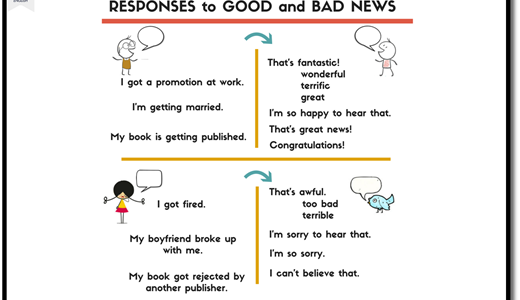
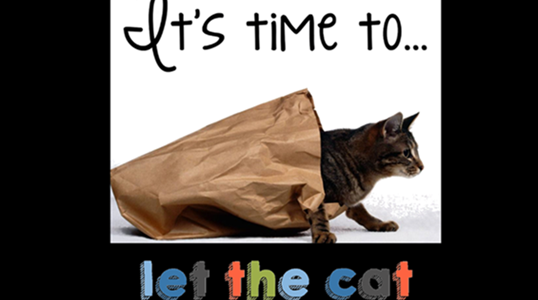
Sapete cosa significa : Let the cat out of the bag?
Letteralmente si traduce come “fare uscire il gatto dalla borsa” ma in realtà significa “farsi scappare un segreto di bocca“!
Example:
I was trying to organise a surprise party for my mum’s birthday but my sister let the cat out of the bag and ruined all. = Stavo cercando organizzare una festa a sorpresa per il compleanno di mia madre, ma mia sorella se l’è fatto scappare e ha rovinato tutto.
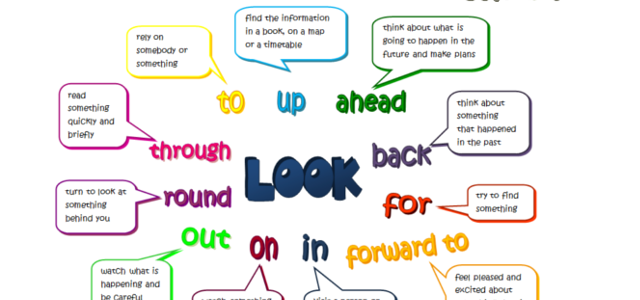
Cosa sono i Phrasal Verbs o verbi frasali? Sono una particolare costruzione della lingua inglese che prevede l’uso di un verbo seguito da una preposizione o un avverbio.
I Phrasal Verbs hanno nella maggioranza dei casi un significato molto diverso dal significato originale del verbo senza l’aggiunta della preposizione o dell’avverbio.
Chiunque stia studiando o abbia studiato inglese sa che i phrasal verb ricoprono una parte molto importante e piuttosto difficile della sua grammatica, ma sono essenziali e non si possono trascurare in quanto sono usati quotidianamente e quindi fondamentali per capire quello che si sente e si legge!
Il motivo di questa difficoltà dipende dal fatto che spesso i phrasal verb sono idiomatici, cioè il loro significato può essere molto diverso dal significato delle parti che li formano. Quindi l’unica cosa è…. ahimè …. impararli a memoria!
Oggi vediamo alcuni esempi di phrasal verbs con il verbo “Look” :
Ex : I don’t know this word! I’ll look it up on the dictionary! = Non conosco questa parola! La cercherò nel dizionario!
Ex : Don’t look back with regret but look ahead with hope= Non guardarti indietro con rammarico ma guarda al futuro con speranza.
Ex : Don’t look back with regret but look ahead with hope= Non guardarti indietro con rammarico ma guarda al futuro con speranza.
Ex : I’m looking for my keys, have you seen them? = Sto cercando le mie chiavi, le hai viste?
Ex : I look forward to the day when I can afford to retire. = Aspetto con impazienza il giorno in cui potrò permettermi di andare in pensione.
Ex : I will look in on you tomorrow = Ti farò una visitina domani.
Ex: While my father taught me to swim, my mother looked on from the shore. = Mia madre guardava dalla riva mentre mio padre mi insegnava a nuotare
Ex : Look out, an earthquake just started. = Stai attento, un terremoto è appena iniziato.
Ex : I heard a noise so I looked round to see what it was = Ho sentito un rumore quindi mi sono girato per vedere che cosa fosse.
Ex : We looked through all the newspaper to check if something important happened = Abbiamo svogliato il giornale per controllare se qualcosa di importante era accaduto.
Ex: Children look to their parents for guidance. = I bambini guardano ai genitori per avere una guida.
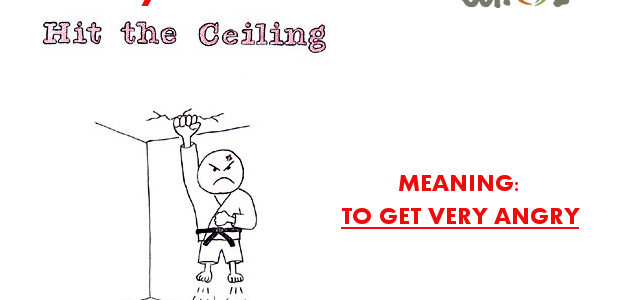
Sapete cosa significa : Hit the ceiling ?
Letteralmente si traduce come “colpire il soffitto” ma in realtà significa arrabbiarsi molto o meglio “andare su tutte le furie”.
Example:
My sister hit the ceiling when I told her that I’d lost her purse. = Mia sorella è andata su tutte le furie quando le ho detto che avevo perso la sua borsa.
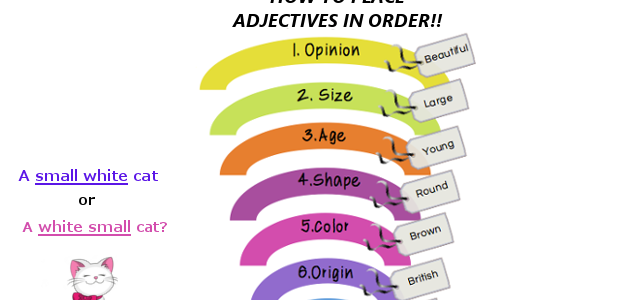
In inglese abbiamo un ordine prestabilito per l’uso degli aggettivi . L’ordine degli aggettivi di solito viene spiegato così:
Perché è importante sapere come ordinare gli aggettivi? Se collochi due parole nell’ordine sbagliato quando descrivi un oggetto, le persone ti capiranno comunque, ma sembrerà molto strano a un madrelingua inglese. Quindi, se vuoi sembrare più fluente, è importante collocare gli aggettivi nell’ordine giusto!
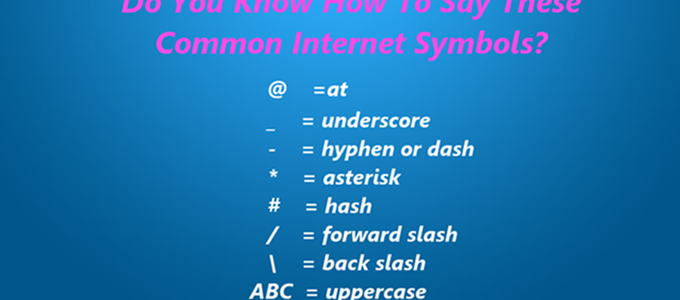
Quante volte è capitato di dover dettare un sito internet o una email in inglese e trovarsi bloccati per una “chiocciola”? Ecco la soluzione!!